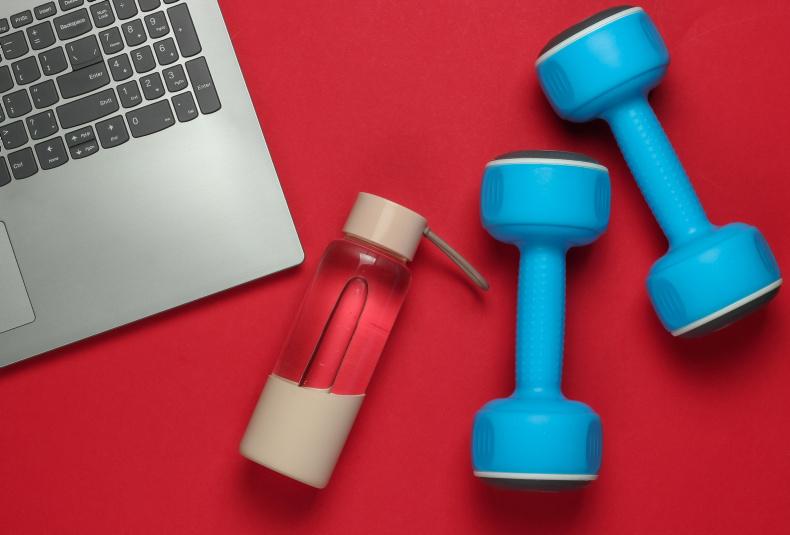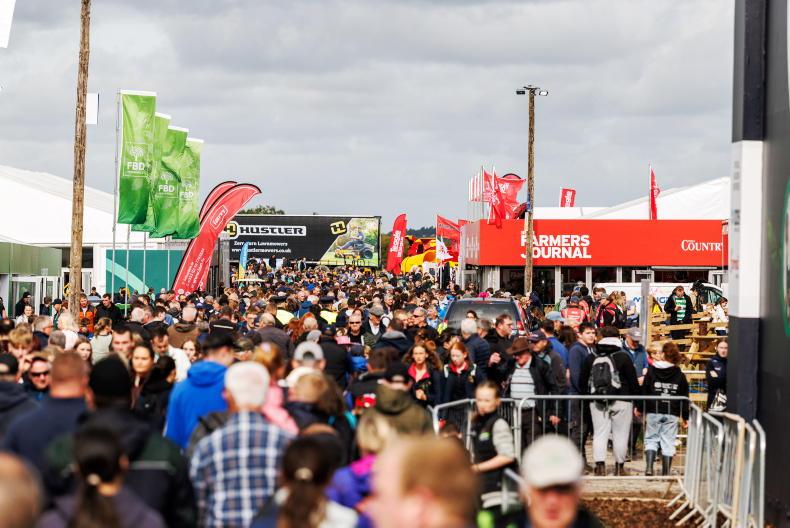Even with quarantine measures starting to loosen, it may be a while before those of us who had on-the-go lifestyles before the pandemic can enjoy them again. In a pre-COVID-19 study on Irish exercise routines, the Royal London Survey found that 68% of respondents exercise regularly, but those over the age of 55 are most likely to exercise every day (38%), while those aged 25-45 are least likely (29%).
Dr Trevor Clohessy works in the department of enterprise and technology at GMIT. He and his team recently published the results of a year-long study on the connection between physical fitness and productivity levels.
“The study centred on cyclists and how they used the fitness app Strava,” he explains. “The first part looked at how athletes monitor their fitness stats. For the second part, we looked at [the participants’] performance in the workplace.”
Two types of athlete
Dr Clohessy maintains that there are two types of athletes – those with harmonious passion for exercise and those with obsessive passion. The study found that, for those with harmonious passion (ie: those who don’t obsess over fitness applications or the amount of steps they take in a day), that passion also spills over into their work life, in terms of productivity.
These apps appeal to our competitive nature, even if you’re not intrinsically athletic
The study focused solely on those who had an existing passion for exercise, but is this representative of the general working population – the age group less likely to be exercising every day? Irish Country Living asks Dr Clohessy: how can those who don’t necessarily enjoy exercise become similarly motivated?
“There are gamifying apps,” Clohessy says. “These apps appeal to our competitive nature, even if you’re not intrinsically athletic. It’s a different form of motivation – the same idea as Weight Watchers and their points system.”
Gamified apps for fitness can be as basic as tracking your caloric intake or as elaborate as having to outrun zombies during exercise sessions. A Google search will unearth a huge range of new apps that make working out a fun challenge.
Virtual Training
Ongoing American-based research shows that exercise is problematic for many women, particularly after having children. Fitness coaches often fail to consider issues like pelvic floor weakness, bladder control, joint pain and back problems - which can be exacerbated by weight gain, but can also cause embarrassment when exercising in a public space. Many women fail to bring these issues to light; accepting them as normal post-partum conditions.
During quarantine, virtual personal training programmes have become popular among many, but has also opened a particular avenue for those who might have been embarrassed to exercise in public, previously.
I would love to think that we’ll go back into the gym, because you’d miss the banter
Some trainers are making use of private social media platforms for virtual group exercise lessons, while others are focusing on one-to-one, personalised programmes.
Jillian Dunne is a personal trainer and fitness instructor from Thurles, Co Tipperary. Before the pandemic, she had been teaching and coaching in nearby Holycross. Now, she’s home with her four children and has pivoted her business to virtual classes via private Facebook pages.
“I would love to think that we’ll go back into the gym, because you’d miss the banter,” she says. “I have about 40 clients who just can’t get motivated at home.”
Jillian says that her biggest issue with virtual training classes is that she can’t properly screen newcomers, but she is seeing lots of new women joining her virtual classes - it’s anonymous, and a stress-free way of learning how to exercise.
I wasn’t always into fitness; it wasn’t until after my second baby that I developed an interest
“You wouldn’t know beginners and that’s always a concern,” she says. “I start them off easy and always give a few options for each exercise. You have to build up people’s confidence; if you’re too forceful, they might hurt themselves.”
As a mother, Jillian has an understanding of the stress women’s bodies are under and the gentle support that many require to get in shape.
“I wasn’t always into fitness; it wasn’t until after my second baby that I developed an interest,” she says. “I was a beginner starting off, so I understand how a lot of people are feeling.”
Jillian is currently developing a website with plans to expand her virtual training offering in the coming months.
In the meantime, you can find her on Facebook and request to join her private exercise groups (€40 per five-week exercise block).
Fed up with my own sedentary quarantine lifestyle, I purchased a month-long virtual personal training package. I paid around €100 for the month of May and received access to an app that held my training programme.
This included a detailed meal plan and four different workouts to complete each week. I was screened for any existing health issues and my programme was personalised to incorporate my fitness goals.
My trainer, who is a real human being, was in frequent contact through a messaging app. At first, I found the workouts really difficult, but eventually they became manageable.
The positives:
I gained more energy and lost inches. My clothes fit better. I started eating more frequently and ate a wider variety of foods. Before, I would often forget to eat for hours and then gorge because I was starving.
The negatives:
I will say that I didn’t lose much actual weight, and the restrictive diet may have caused more binging on unhealthy foods as a “treat” (I have no one to blame for this but myself). I wasn’t crazy about switching to light mayonnaise, either.
Since no one is watching you, it’s easy to lie when inserting your exercises into the app. I will come clean about one thing: I never once did a burpee (and I never will).
The verdict:
I went into this hoping for a miracle and for some serious motivation – neither happened, but I also haven’t quit the training programme. I realise this is a process and it may take longer for some to see results.









SHARING OPTIONS